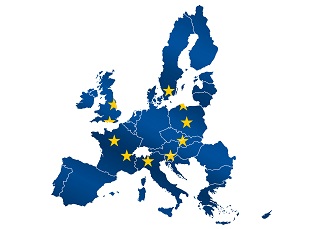We can't escape borders!

Related topics
Society Social Science & Humanities Science with and for Society Bulgaria Finland France Germany Hungary Italy Luxembourg Netherlands Poland Spain Sweden United Kingdom Israel Norway Russian Federation Turkey Ukrainedate: 13/03/2014
Project: Bordering, Political Landscapes and Soci...
acronym: EUBORDERSCAPES
See also: CORDIS
Contact: Contact
This international research consortium aims to investigate how economic interactions and cross-border governance networks – that have emerged as a result of European integration and globalisation – have influenced political, social and institutional points of view, and concepts relative to borders in Europe and elsewhere.
Researching the influence of cross-border integration
The principal objective of the work package led by CEPS/INSTEAD is to examine how the process of cross-border integration can modify our understanding of state borders and how it has affected notions of borders at different levels. On this basis, three main research questions have been identified. The first area of research concerns the significance of borders and deals with the attitudes and perceptions of local and regional actors involved in the territorial restructuring of twin cities and cross-border metropolitan regions.
The second area of research highlights the process of cross-border integration that occurs within the cross-border urban spaces under scrutiny. The objective is to analyse the forms and types of cross-border urban integration, and the drivers and hindrances that shape this process.
The third and final area of research seeks to tackle the functioning and the meaning of specific cross-border urban regimes at work in Europe. The aim is to develop a more integrated and comprehensive approach which gives room for the different dimensions analysed in the first two areas of research (i.e. the functions attributed to borders and the degree of integration) and investigates the modes of governance associated with these processes.
Research strategy
A joint conceptual framework for all the case studies selected has been defined with input from the partners with their various disciplinary backgrounds. In order to conduct empirically grounded research on the aforementioned research questions, an eclectic and pragmatic working method has been adopted. It includes an inductive approach which uses qualitative methods (mainly through interviews with local and regional actors), and a deductive approach based on theoretical frameworks which aims to test hypotheses in order to validate the theoretical models. The combination of these two approaches will allow us to collectively frame our research and will facilitate the comparison of our results.
Using Luxembourg as a case study
The cross-border metropolitan region of Luxembourg will be one of the twelve case studies selected in order to cover a diverse range of geopolitical contexts, various urban dimensions, and different levels and nature of cross-border integration. In the first months of the project, the overall approach and research questions related to the work package have been presented and validated by all partners. The next points will consist of the preparation of the intensive research phase (design of the questionnaire and selection of the actors to be interviewed) and the fieldwork which will start in 2014.
